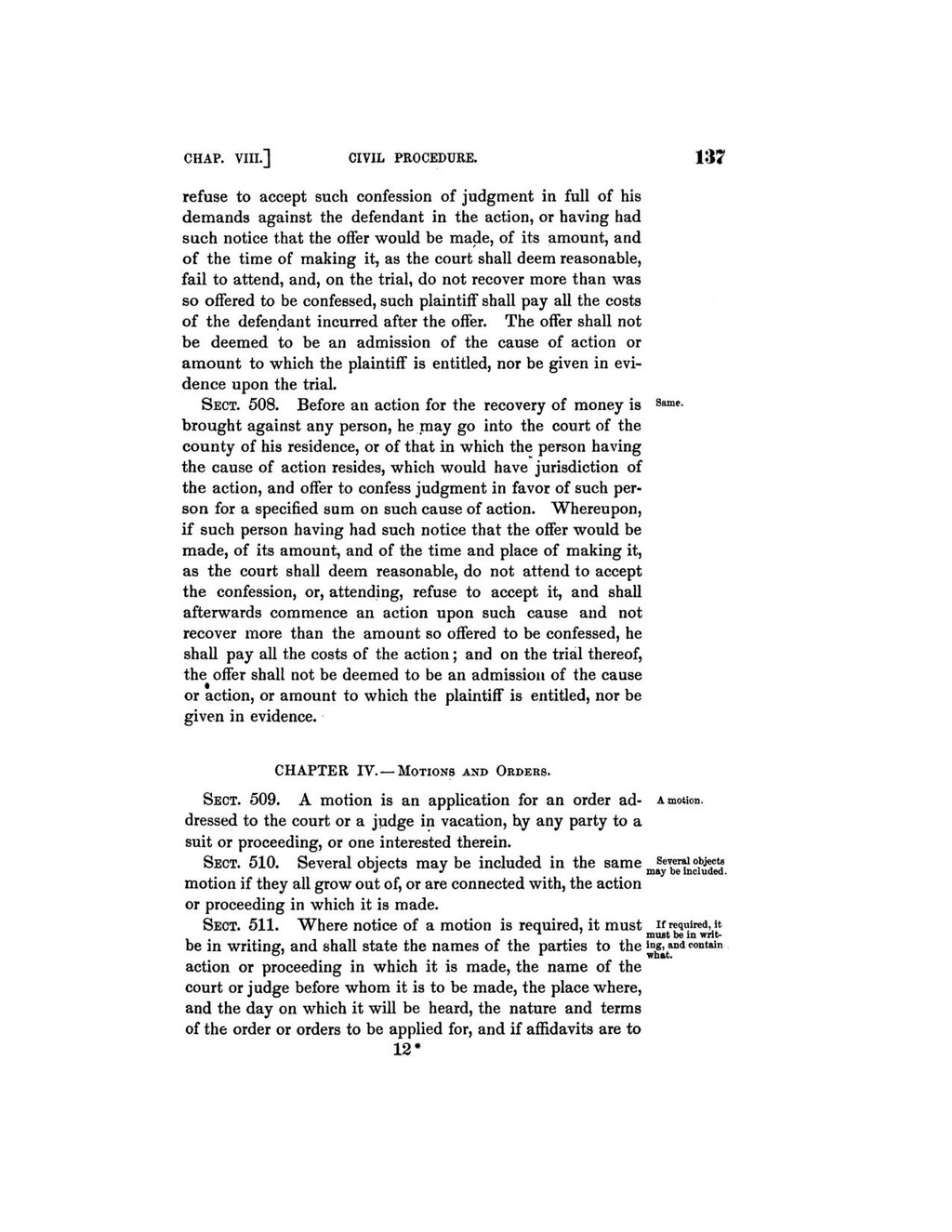refuse to accept such confession of judgment in full of his demands against the defendant in the action, or having had such notice that the offer would be made, of its amount, and of the time of making it, as the court shall deem reasonable, fail to attend, and, on the trial, do not recover more than was so offered to be confessed, such plaintiff shall pay all the costs of the defendant incurred after the offer. The offer shall not be deemed to be an admission of the cause of action or amount to which the plaintiff is entitled, nor be given in evidence upon the trial.
Same.Sect. 508. Before an action for the recovery of money is brought against any person, he may go into the court of the county of his residence, or of that in which the person having the cause of action resides, which would have jurisdiction of the action, and offer to confess judgment in favor of such person for a specified sum on such cause of action. Whereupon, if such person having had such notice that the offer would be made, of its amount, and of the time and place of making it, as the court shall deem reasonable, do not attend to accept the confession, or, attending, refuse to accept it, and shall afterwards commence an action upon such cause and not recover more than the amount so offered to be confessed, he shall pay all the costs of the action; and on the trial thereof, the offer shall not be deemed to be an admission of the cause or action, or amount to which the plaintiff is entitled, nor be given in evidence.
CHAPTER IV.—Motions and Orders.
A motion.Sect. 509. A motion is an application for an order addressed to the court or a judge in vacation, by any party to a suit or proceeding, or one interested therein.
Several objects may be included.Sect. 510. Several objects may be included in the same motion if they all grow out of, or are connected with, the action or proceeding in which it is made.
If required, it must be in writing, and contain what.Sect. 511. Where notice of a motion is required, it must be in writing, and shall state the names of the parties to the action or proceeding in which it is made, the name of the court or judge before whom it is to be made, the place where, and the day on which it will be heard, the nature and terms of the order or orders to be applied for, and if affidavits are to